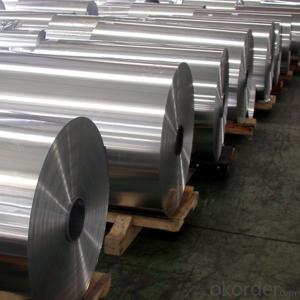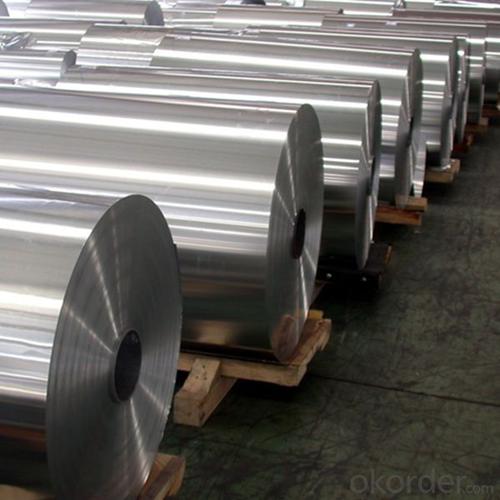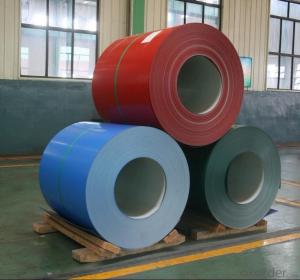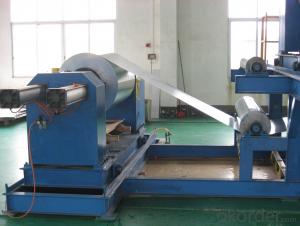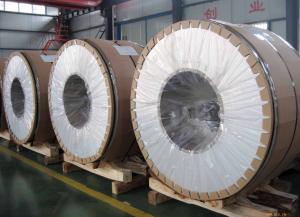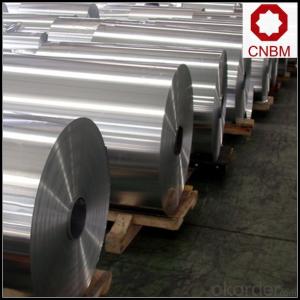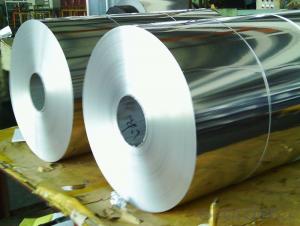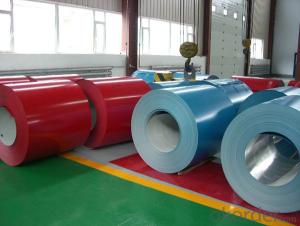5052 Aluminum Coil Wholesale - Polished Mill Finished Aluminum Rolls for Metal Walls
- Loading Port:
- Shanghai
- Payment Terms:
- TT OR LC
- Min Order Qty:
- 5 m.t.
- Supply Capability:
- 10000 m.t./month
OKorder Service Pledge
OKorder Financial Service
You Might Also Like
Specification
1. Specification of Polished Mill Finished Aluminum Rolls for Metal Walls
characteristics | Application |
1) Super peeling strength | 1) Building exterior curtain walls |
2) Excellent surface flatness and smoothness | 2) Decoration and renovation additions for old buildings |
3) Superior weather, corrosion, pollutant resistance | 3) Decoration of interior walls, ceilings, bathrooms, kitchens and balconies |
4) Even coating, various colors | 4) Shop door decorations |
5) Fireproof, excellent heat and sound insulation | 5) Advertisement board display platforms and signboards |
6) Superior impact resistance | 6) Wallboards and ceilings for tunnels |
7) Lightweight and easy to process | 7) Industrial materials, materials for vehicles and boats |
2. Application of Polished Mill Finished Aluminum Rolls for Metal Walls
(1).Interior: wall cladding, ceilings, bathrooms, kitchens and balconies, shutters, doors...
(2).Exterior: wall cladding, facades, roofing, canopies, tunnels,column covers , renovations...
(3).Advertisement: display platforms, signboards, fascia, shop fronts...
3. Feature of Polished Mill Finished Aluminum Rolls for Metal Walls
*Such coil is specially designed to replace aluminum ingot, due to the high export tax of aluminum ingot, the coil has better price than ingot.
*This type of coil can fit customer's remelting furnace just like ingot, no need to make any change to the production line that was previously used for ingot. The standard coil size and weight is very suitable for the feed gate of furnace.
*This type of coil causes less material wastage than ingot when remelted.
*Our coil is made directly from ore, no need to go though the ingot making process, quality is much better than other suppliers who use ingot scrap to make coil.
Be free from Oil Stain, Dent, Inclusion, Scratches, Stain, Oxide Dicoloration, Breaks, Corrosion, Roll Marks, Dirt Streaks and other defect which will interfere with use
4. Certificate:
SGS and ROHS(if client request, paid by client), MTC(plant provided), Certificate of Origin(FORM A, FORM E, CO), Bureau Veritas and SGS (if client request, paid by client), CIQS certificate
5. Image of Polished Mill Finished Aluminum Rolls for Metal Walls
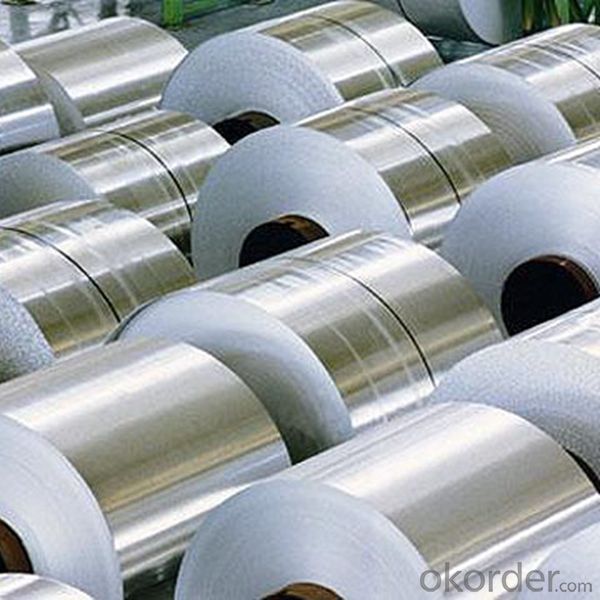
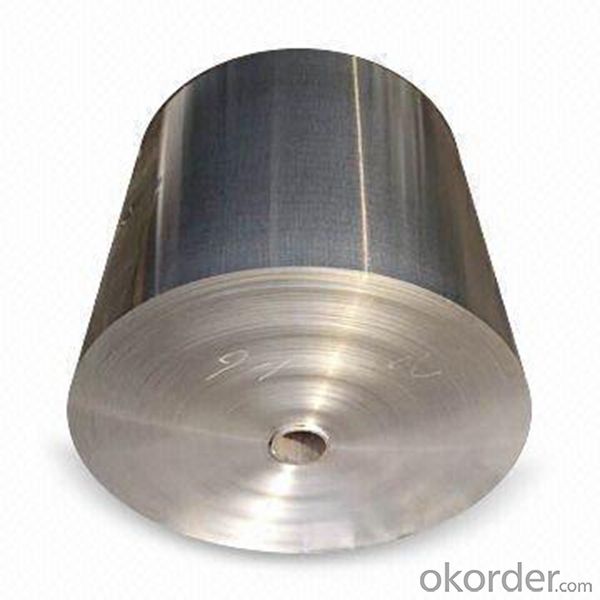
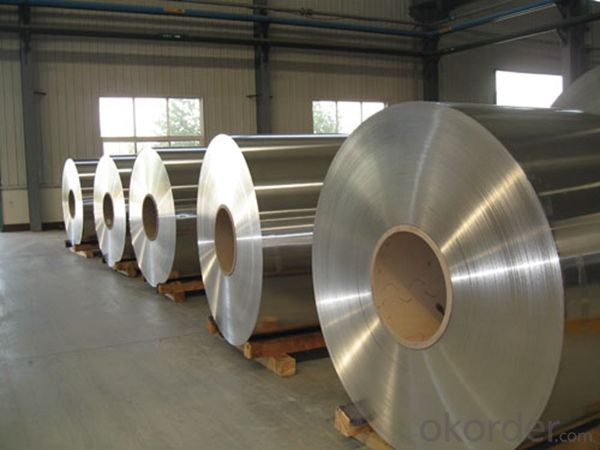
6. Package and shipping of Polished Mill Finished Aluminum Rolls for Metal Walls
eye to wall
eye to the wall
with wood pallet (wooded case also available)
7. FAQ
1) What is the delivery time?
Dpends on actual order, around 20 to 35 days
2)What is the QC system:
We have QC staff of 20 persons and advanced equipment, each production is with MTC traced from Aluminum ingot lot.
3) What market do you mainly sell to?
Australia, America, Asia, Middle East, Western Europe, Africa etc
- Q: Are there any specific guidelines for handling and storing aluminum coils in warehouses?
- Yes, there are specific guidelines for handling and storing aluminum coils in warehouses. Some key guidelines include ensuring proper ventilation to prevent condensation and humidity, storing coils on pallets or racks to prevent damage, using appropriate lifting equipment to handle coils safely, avoiding stacking heavy items on top of coils, and regularly inspecting for any signs of damage or corrosion. Additionally, it is important to follow any manufacturer-specific guidelines for handling and storing aluminum coils.
- Q: Can aluminum coils be used in curtain wall systems?
- Yes, aluminum coils can be used in curtain wall systems. Aluminum is a popular material choice for curtain walls due to its lightweight nature, durability, and corrosion resistance. Aluminum coils can be easily formed and shaped to create the desired profiles for curtain wall systems. Additionally, aluminum is available in a wide range of colors and finishes, allowing for customization and design flexibility. The use of aluminum coils in curtain wall systems also offers energy efficiency benefits, as aluminum has good thermal conductivity properties. Overall, aluminum coils are a suitable and commonly used material in the construction of curtain wall systems.
- Q: How are aluminum coils used in the manufacturing of household appliances?
- Aluminum coils are used in the manufacturing of household appliances as they provide excellent conductivity, durability, and corrosion resistance. These coils are commonly used in appliances such as refrigerators, air conditioners, and heating systems. They help in transferring heat efficiently, improving energy efficiency, and ensuring the longevity of the appliance. Additionally, aluminum coils are lightweight, making them easier to handle during the manufacturing process.
- Q: This question asks for methods to check the quality of aluminum coils.
- <p>To inspect aluminum coils for quality, follow these steps: Visually inspect for any surface defects like scratches, dents, or discoloration. Measure the thickness and width to ensure they meet specifications. Check the hardness and tensile strength using appropriate testing equipment. Examine the coil's flatness and straightness to avoid issues in further processing. Assess the surface roughness and cleanliness, as these can affect the coil's performance. Conduct a chemical composition analysis to confirm the alloy type and purity. Perform a magnetic particle inspection or ultrasonic testing to detect any internal defects. Finally, ensure the coil meets the required mechanical properties and specifications as per industry standards.</p>
- Q: How are aluminum coils used in the production of automotive heat shields?
- Aluminum coils are used in the production of automotive heat shields as they provide excellent thermal conductivity and heat dissipation properties. These coils are shaped into specific patterns or designs and then attached to the heat shields to effectively reflect and reduce the transfer of heat from the engine or exhaust system to other sensitive components in the vehicle. The use of aluminum coils in heat shields helps in maintaining optimal operating temperatures, enhancing overall performance, and preventing potential damage or fire hazards.
- Q: This question asks for the distinctions between two forms of aluminum used in various industries: coils and sheets.
- <p>Aluminum coil and aluminum sheet are both flat aluminum products but differ in form and usage. Aluminum coil is a long, continuous roll of aluminum that can be easily cut to length and is often used for manufacturing processes like stamping, bending, and forming. It's ideal for applications requiring a consistent and uniform supply of material. On the other hand, aluminum sheet is a flat, rectangular piece of aluminum with a specific thickness, width, and length. It is used for applications where a single piece of material is needed, such as in construction, signage, and decorative purposes. The main difference lies in the form factor and the way they are used in manufacturing and construction processes.</p>
- Q: What kind of sensor is appropriate for aluminum coil thickness measurement?
- You can use ZLDS10X series sensor.
- Q: What are the different grades of aluminum used in coils?
- Coils utilize various grades of aluminum, each boasting unique properties and applications. Notable grades encompass: 1. The 1000 series, a commercially pure aluminum, excels in fighting corrosion. It finds its niche in chemical processing devices and marine components, where corrosion resistance reigns supreme. 2. The 3000 series alloys shine with moderate strength and impressive formability. Their versatility sees them employed in cooking utensils, heat exchangers, and general sheet metal fabrication. 3. The 5000 series grade impresses with its weldability and corrosion resistance. Marine settings, transportation, and structural components all benefit from its presence. 4. The 6000 series alloys blend strength, formability, and corrosion resistance. As a result, they abound in architectural applications - window frames, doors, and curtain walls. 5. The 7000 series grade touts high strength and toughness. It's a favorite contender within aerospace, sporting goods, and automotive realms, where robustness is paramount. These examples merely scratch the surface of the aluminum grades employed in coils. Selecting the appropriate grade hinges on application-specific criteria like strength, corrosion resistance, formability, and weldability.
- Q: Is it possible to use aluminum coils in the construction of a solar charger or battery pack?
- <p>While aluminum coils can be used in various electrical applications due to their conductivity, they are not typically used in solar chargers or battery packs. Solar chargers and battery packs usually require materials with higher conductivity and specific properties for efficient energy transfer and storage. Copper is more commonly used for wiring in these devices due to its superior conductivity compared to aluminum. Aluminum may not provide the necessary efficiency and could lead to energy loss. For the best performance in solar chargers and battery packs, it's recommended to use materials specifically designed for these applications, such as high-quality copper wiring and appropriate battery cells.</p>
- Q: Are aluminum coils suitable for food and beverage packaging?
- Yes, aluminum coils are highly suitable for food and beverage packaging. Aluminum is a safe and durable material that helps protect the quality and freshness of food and beverages. It is non-toxic, corrosion-resistant, and provides an effective barrier against moisture, oxygen, and light. Additionally, aluminum coils are lightweight, easily moldable, and can be easily shaped into various packaging formats, making it a popular choice for the food and beverage industry.
Send your message to us
5052 Aluminum Coil Wholesale - Polished Mill Finished Aluminum Rolls for Metal Walls
- Loading Port:
- Shanghai
- Payment Terms:
- TT OR LC
- Min Order Qty:
- 5 m.t.
- Supply Capability:
- 10000 m.t./month
OKorder Service Pledge
OKorder Financial Service
Similar products
Hot products
Hot Searches
Related keywords
